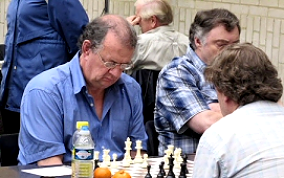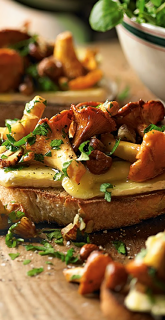|
Division 2b, Weekend 3, Park inn Northampton, 11-12
Feb 2017
by John Carleton
The approach of the halfway
point of this year's competition had appeared so
far away but seemed to speed towards us in the
last few weeks. This particular weekend had been
earmarked by us as make or break time with
regards to our target of reaching the promotion/championship pool of division 2 [unless we had
already messed things up in one of the first two
weekends].
We had to play two tough teams
very close in strength to ourselves and it would
all come down to performance "on the day".
Saturday saw us paired to play Cambridge
University 1 in a repeat of what turned out to
be the final first division fixture for each
team last season. Cambridge were not as strong
as the previous weekend but were practically
identical on ratings [particularly ECF] to us
and it was no surprise to see aggressive intent
from both sides of the table throughout the
match right from the off.
| |
 |
|
|
Captain: John Carleton |
|
|
|
There was a flurry of
results not too long after the three hour
mark; we went two down on boards seeing
white bishops deployed on f4. On board 6
Dave Latham fell into passive defence
against harmonious development by opponent
Patrick Stanisz and when the dark squared
bishops were exchanged white used the
resulting outpost on d6 to devastate the
black position. Board 7 saw Tom's agile
bishop met by the counter-deployment of
Robert Starley's bishop on f5. As the game
unfolded Tom gradually took control, but on
the point of landing a victory [and still
requiring some trickery], the Atticus man
blundered and it was another full point to
Cambridge.
|
|
|
|
Round
5,
Weekend 3, 2016-17 |
|
|
|
|
Equality was re-established
when board 8 Peter Ackley knocked out
Sabrina Chevannes by dominating the long
dark squared diagonal leading to the
Cambridge player's king: this game featured
the fewest number of moves in the contest
and was the most brutal. I scored our second
point on board 1 against Daniel Bisby who
sacrificed a pawn in search of freedom as
the pressure mounted. His respite proved
short-lived and the second wave of pressure
broke through. Alas, from our point of view
2-2 soon became 2-3 when Stuart Robertson on
board 5 managed to free his position against
Sheila Jackson's promising opening. The
weaknesses in the Atticus player's position
could not be shielded and Sheila was forced
to resign the lost ending. The three games
remaining meant all three results were still
possible : on board 2 Martin Mitchell with
the black pieces had struggled against
Cambridge's Alistair Hill's opening
pressure. When Martin escaped into a bishop
v knight ending with symmetrical pawns few
doubted that this game would be drawn but
Martin appeared to be enjoying matters...
Glenn House's game on board 3
against master of the dark arts, Richard Lee [Editor's
note: The Cambridge player seems to play black
in every game for the University], saw
Glenn's more effective piece placement seem
irresistible as the 40 move control arrived and
passed. Somehow Richard survived and the players
arrived in a tense knight and bishops of
opposite colour ending with Glenn a passed pawn
ahead. The trio of games in play was completed
by Nick Ivell against Carl Spencer. The unusual
position saw Nick with two rooks against queen
with a better pawn structure. On the downside
Nick's king was lacking pawn cover and bishops
of opposite colour completed a puzzling
position. All in all, we felt Nick's position
was better but Carl's was easier to play.
Gradually the results came in; Martin and
Alistair agreed the draw. Carl forced a
repetition against Nick and now we were left
with Glenn in play and only two match results
possible. The majority of the team vacated the
playing room to honour our booking at the local
Thai restaurant and awaited Glenn as we enjoyed
a glass of wine. Glenn duly arrived and had
delivered, in slightly over 6 hours play, the
win and thus the 4-4 result by transposing into
a pure but winning bishops of opposite colour
ending.
| |
 |
| |
|
By winning Glenn equalled Tom's
record for the Spirit of Atticus of 5
consecutive wins in the 4NCL and rightly
received the plaudits of the team. This may not
seem so great to a team like Alba, the erstwhile
leaders of our division, who currently have
captain Elaine Bamber on a 6 game winning
streak, Clement Sreeves on a 7 game winning
streak and Andrew Greet who once won about 40
games in a row [Editor's note: Are you sure
about that last one?]. However we will
continue to celebrate our successes. The meal
proceeded smoothly and the team retired to the
bar of our hotel which by a strange thread of
circumstances happened to be the Ibis.
Thereafter the particular pressures on a captain
came into place. In the interests of networking,
I, after the Ibis bar closed at 11:00p.m., had
to adjourn to the Park inn loyally supported by
team member Dave Latham and no.1 supporter
Jeannie. Eventually bed beckoned and we awoke to
the challenges of round 6.
|
|
|
|
Round
6,
Weekend 3, 2016-17 |
|
|
|
|
These challenges were not
slight and took the form of opponents
Warwickshire Select 1. This team is very
experienced and like the England Rugby Union
team possesses a very strong "bench" which
this season has appeared on the second game
of the weekend [as opposed to during the
second half of a rugby game.
This weekend proved no exception
to that pattern and their headline grade moved
up 40 points from the previous round.
Nonetheless we were aware that of the four
opponents we had in common so far this year
three saw identical scores from our two teams
and the fourth the same match result. Thus it
was everything to play for. There were two early
results which offered us hope for the final
outcome since both were with the black pieces;
Sheila on board 5 equalised swiftly against the
experienced Don Mason and in a relatively flat
position the draw was agreed. On board 3 Glenn
faced the equally experienced John Pitcher and
both players were content to half the point in
an equal but complex position. For Glenn this
was surely a wise decision given his exertions
of the day before.
The other black games saw me on
board 1 having equalised into a complex
middlegame but Tom on board 7 had run into a
whirlwind in the form of Phil Brooks. The
Warwickshire player unleashed a white square
strategy which led to dangerous [for Tom]
domination, only slightly diminished by Tom
shedding a pawn.
The white games though were
showing promise and soon brought us wins.
Firstly board 4 left Nick with the better
structure and weaknesses to attack in the black
ranks. A desperate exchange sacrifice by
opponent Henrik Stepanyan brought the
Warwickshire player some activity but this
proved short-lived and Nick gradually kept
control to force resignation.
On board 8, Peter
Ackley, one of the two players in our team still
with Warwickshire connections, [I am the other,
we both dabble in their correspondence chess
activities] was playing the junior David
Phillips who had helped create an interesting
imbalance [queen and two pawns against rook and
two bishops] in his drawn game in the previous
round. The young player brought out the best in
Peter and in this game Peter, after mutual
tactics, arrived at a position with three minor
pieces against two rooks. There is no hard and
fast rule about endgames featuring this balance
of power but here Peter was able to harvest
pawns until his position was overwhelming.
These two wins were offset by
Tom losing his game after having to accept a
rook ending material down. This was an
impressive game by Phil Brooks. On board 2
Martin and opponent Nicholas Thomas agreed a
draw in a rook and bishops of opposite colour
ending after interesting play that rarely seemed
to veer far from level. In the next game to
finish Dave Latham on board 6, playing Jeremy
Fallowfield, belatedly constructed an IPC [Editor's
note: Irish Pawn Centre], the advance of
which gradually stripped away the black defences
and in due course won a most attractive game and
secured the match victory. That left just my
game in progress; on the arrival in a minor
piece ending I drifted into passivity and was
outplayed as Irvin established and expanded a
space advantage into victory. We had thus won
the match by a single point.
Division 2b after round 6
When the smoke of battle had
cleared, the four teams heading into the
promotion pool were settled a round early: Alba,
Cambridge University 1, ourselves and
Warwickshire 1. The final pool games in our
section will feature two matches that will carry
into the new pools, viz, Cambridge University 1
v Alba in the championship pool and KJCA Kings v
Guildford 3 in the demotion pool. For those four
teams the final countdown begins a little
earlier than for the rest of us. Naturally there
is a great sense of anticipation and with only
three weeks between weekends we won't have too
long to wait.
In the above games you can
activate the engine analysis board by clicking
the E8 (assuming White on bottom, D1 otherwise)
shortcut square on the main chessboard.
-
explore variations by
clicking the from and to squares for the
intended move
-
click the arrow buttons to
move back/forth through the variation being
analyzed
-
click the plus button at the
right of the arrow buttons to force the
engine analysis board to auto update
following the position of the main
chessboard; this is useful for instance when
following a live broadcast; limitations:
some pages might not offer this
functionality and some browsers do not
support this functionality
-
click on the side to move
indicator to switch the side to move; this
is useful to check for threats in the given
position
-
click on the principal
variation to execute its first move on the
engine analysis board
-
click on the evaluation mark
to activate/deactivate the engine
|
![]()
![]()
![]()